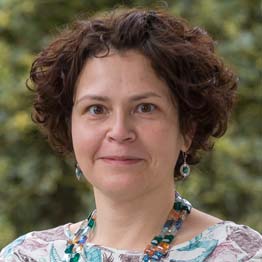18/12/2021
Published in
Diario de Navarra
Sarali Gintsburg
Principal Investigator of MYOUROPE, Institute for Culture and Society. University of Navarra
 With the goal to draw attention to migration, as well as to the rights of migrant workers and their families, the UN established International Migrants Day on 18 December 2002. The proximity of the commemoration prompts us to think about this phenomenon that has become so complex in our global world. There is no doubt that the whole of human civilisation, with its great achievements, is the fruit of numerous mass migrations. Understanding its implications today without reductionism requires a balanced reflection.
With the goal to draw attention to migration, as well as to the rights of migrant workers and their families, the UN established International Migrants Day on 18 December 2002. The proximity of the commemoration prompts us to think about this phenomenon that has become so complex in our global world. There is no doubt that the whole of human civilisation, with its great achievements, is the fruit of numerous mass migrations. Understanding its implications today without reductionism requires a balanced reflection.
The topic of migration has always been a relevant issue throughout human history. In almost every era it has had a major political impact, although it is only in our own time that we have witnessed an unprecedented politicisation. We even have heated discussions about what to call this phenomenon, reflecting the Degree polarisation of our society. For example, some call for dropping the word 'migration' because of its supposedly derogatory meaning and using instead the term 'mobility', which theoretically alludes to the intrinsic human tendency to be on the move. Others insist on maintaining a strict terminological distinction: they suggest using 'immigrants' as opposed to 'migrants' (one can also add emigrants and expatriates to this list).
One of the major concerns of our societies is the existence of immigrants who maintain an ethnic and cultural distance from them. In the European context, this is particularly the case for those from the Middle East and Africa. Some members of the host society express the fear of seeing their own ethnic, national and/or religious identity diluted, while at the same time perceiving that the real integration of foreigners does not take place in many cases.
Many fears and reductionist perceptions of the phenomenon - for and against it - are fuelled by the large issue of manipulative and uncontrolled content and messages in public spheres, mainly the internet and social media. They constitute one of the main obstacles to understanding the natural process of migration and the people behind it.
One side talks about bad foreigners who first come to "our country", then steal "our jobs" and then abuse "our generous welfare system". And, to top it off, they stop working and refuse to accept "our customs and traditions". In the favourable positions we also find a simplistic message, a caricature that fails to explain this complex reality: immigrants are portrayed as innocent, hard-working people who had to flee from their home country due to political or religious persecution, or because of war.
When the discussion gets heated, it is always a good strategy to step aside and listen to both sides from a distance. The truth, as is often the case, lies somewhere in between. One of the most logical ways to find it is to let the migrants have a voice and present themselves. Ironically enough, when we talk about migration and the problems associated with it, we almost never get to hear from the protagonists themselves and, if we do, their opinions are so edited that it is almost impossible to understand what they really think.
One of the windows into the reality of migrants is what is now called digital 'third places', segments of social networks that some of them use to share their experiences with each other and receive advice and exchange opinions about their new home country and their new neighbours.
In my research I have analysed these digital 'third places' of North Africans living in Spain, 'new Europeans'. I have heard some stories and read comments from audiences both in their places of origin and in Europe. I have also talked to some of them.
One of the most interesting findings is that many migrants continue to live completely separated from their new host society, even though some of them have been living in Europe for more than ten years. Their only link seems to be very formal, mainly through social services and governmental organisations. Remaining culturally, religiously and linguistically far from the society in which they live, migrants use social networks to establish connections in their daily lives. However, even in their digital interactions they continue to live in a bubble. And we continue to live in our own, which is also not the case financial aid. It is high time that we burst them and reach out to each other: only in this way will we progress towards a mutual understanding that favours the integration of the 'new Europeans'.
